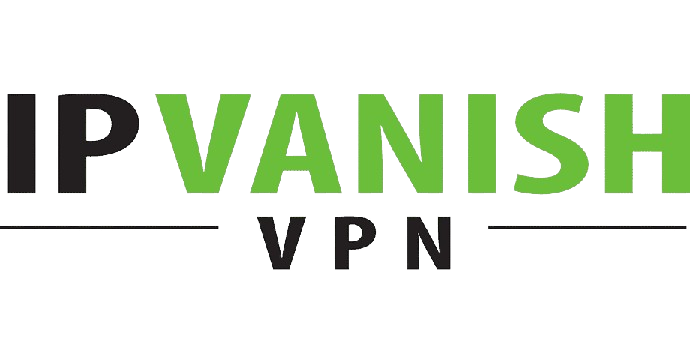Top 10 best VPN services for 2024
Explore our experts’ tested and reviewed top VPNs for online privacy and security. Simply click on the product name in the list below to effortlessly access the latest prices, technical specifications, and additional information about each product.
- Fast & secure servers in Europe, USA & over 100 more countries
- Change your IP address & use the internet privately & securely
- Verified to work with popular platforms, apps & services
- Discover the best VPN deals & VPN free trials
compatible with PC, Mac, iOS, Android, Router and more :
- Updated On January 14, 2024
The best all-round VPN. Extremely fast, reliable & secure. Perfect for high bandwidth activity. 24/7 live chat support. Outstanding!
80% off our users choose ExpressVPN
- Try it with a 30 day & money-back guarantee
- High-speed servers
- Works with popular platforms & services
- No web logs & no IP/DNS address leaks
- 3,000 servers in 106 countries
9.8
BEST OVERALL
- High-speed servers
- Ad-blocker tracker feature
- Works with popular platforms & services
- No web logs & no IP/DNS address leaks
- servers in 91 countries
- Try it for free for 30 days
9.4
GREAT
- Try it for 45 days for free
- Auto WiFi protection
- Chrome & Firefox extensions
- No web logs & no IP/DNS address leaks
- servers in 100 countries
9.2
VERY GOOD

Fast VPN built for beginners. Strong security & privacy features. 24/7 live chat support.
Connect unlimited devices with a signle account
- 30-day refund promise
- GPS protection on Android
- Chrome & Firefox extensions
- No web logs & no IP/DNS address leaks
- servers in 100 countries
9.1
VERY GOOD

Excellent speeds, no-logs policy & advanced security features. Popular with Firestick users. Live chat support.
- Unlimited same time connections
- Try it for free for 30 days
- Pool of 40k IP addresses
- No web logs & no IP/DNS address leaks
- servers in 60 countries
8.9
VERY GOOD
- Built-in malware protection
- 30-day refund promise
- Chrome & Firefox extensions
- No web logs & no IP/DNS address leaks
- servers in 60 countries
8.7
VERY GOOD
- Effective stealth VPN protocol
- Try it for free for 30 days
- Pool of 40k IP addresses
- No web logs & no IP/DNS address leaks
- servers in 63 countries
8.5
GOOD
- Real-time malware protection
- Try it for free for 45 days
- chrome extension
- No IP/DNS address leaks
- servers in 82 countries
8.3
GOOD
- Works well on IPv6 connections
- 30-day refund promise
- Chrome & Firefox extensions
- No user logs & no IP address leaks
- servers in 53 countries
8.2
GOOD
- A good option for newbies
- Try it for free for 30 days
- Chrome extensions
- No user logs & no IP address leaks
- servers in 53 countries
8.0
GOOD
9.8
BEST OVERALL
- Try it with a 30 day & money-back guarantee
- High-speed servers
- Works with popular platforms & services
- No web logs & no IP/DNS address leaks
- 3,000 servers in 106 countries

9.8
BEST OVERALL
- High-speed servers
- Ad-blocker tracker feature
- Works with popular platforms & services
- No web logs & no IP/DNS address leaks
- servers in 91 countries
- Try it for free for 30 days

9.8
BEST OVERALL
- Try it for 45 days for free
- Auto WiFi protection
- Chrome & Firefox extensions
- No web logs & no IP/DNS address leaks
- servers in 100 countries

9.8
BEST OVERALL
- 30-day refund promise
- GPS protection on Android
- Chrome & Firefox extensions
- No web logs & no IP/DNS address leaks
- servers in 100 countries

9.8
BEST OVERALL
- Unlimited same time connections
- Try it for free for 30 days
- Pool of 40k IP addresses
- No web logs & no IP/DNS address leaks
- servers in 60 countries

9.8
BEST OVERALL
- Built-in malware protection
- 30-day refund promise
- Chrome & Firefox extensions
- No web logs & no IP/DNS address leaks
- servers in 60 countries

9.8
BEST OVERALL
- Effective stealth VPN protocol
- Try it for free for 30 days
- Pool of 40k IP addresses
- No web logs & no IP/DNS address leaks
- servers in 63 countries

9.8
BEST OVERALL
- Real-time malware protection
- Try it for free for 45 days
- chrome extension
- No IP/DNS address leaks
- servers in 82 countries

9.8
BEST OVERALL
- Works well on IPv6 connections
- 30-day refund promise
- Chrome & Firefox extensions
- No user logs & no IP address leaks
- servers in 53 countries

9.8
BEST OVERALL
- A good option for newbies
- Try it for free for 30 days
- Chrome extensions
- No user logs & no IP address leaks
- servers in 53 countries
Top10.com Has been featured on :

A VPN (Virtual Private Network) is a tool that encrypts and secures your internet connection. It creates a secure tunnel between your device and a remote server, masking your IP address and enhancing privacy. This helps protect your data from hackers, allows you to bypass geo-restrictions, and ensures a safer online experience, especially on public Wi-Fi.
Privacy Protection: A VPN encrypts your internet traffic, safeguarding your data from potential eavesdroppers. This is crucial, especially on public Wi-Fi networks, where your information could be vulnerable.
Security: VPNs add a layer of security to your online activities, protecting you from hackers and other malicious entities. It helps ensure the confidentiality and integrity of your data.
Anonymous Browsing: By masking your IP address, a VPN makes it more difficult for websites and online services to track your online activities. This enhances your anonymity while browsing.
Accessing Restricted Content: If certain websites or online services are blocked or restricted in your location, a VPN can help you bypass these restrictions by making it appear as if you’re accessing the internet from a different location.
Safe Public Wi-Fi Use: When connected to public Wi-Fi, such as in cafes or airports, a VPN provides a secure connection, reducing the risk of your data being intercepted by cybercriminals.
Remote Access: If you need to access your home or work network remotely, a VPN can provide a secure connection, allowing you to access files and resources as if you were physically present.
Bypassing Censorship: In some countries, certain websites and services may be censored or restricted. A VPN can help you bypass these restrictions and access the content you need.
Remember that while a VPN offers valuable privacy and security benefits, it’s essential to choose a reputable provider and be aware of the legal and policy aspects associated with VPN usage.
Choosing between paid and free VPNs depends on your specific needs and priorities. Here’s a comparison:
Paid VPNs:
Security and Reliability:
- Paid VPNs generally offer higher levels of security and reliability. They invest in advanced encryption protocols and infrastructure, providing a more robust and trustworthy service.
Speed and Performance:
- Paid VPNs often have faster and more stable connection speeds compared to free alternatives. This is crucial for activities like streaming or online gaming.
No Ads or Limited Ads:
- Paid VPNs usually do not rely on ads for revenue, resulting in a cleaner user experience. Free VPNs may interrupt your browsing with advertisements.
Customer Support:
- Paid VPN services typically provide customer support, offering assistance if you encounter any issues. This can be essential for resolving technical problems promptly.
Privacy and Logging Policies:
- Many paid VPNs have more transparent privacy policies and strictly enforce a no-logs policy. This means they don’t collect or store your browsing data.
Global Server Network:
- Paid VPNs often have a larger and more diverse server network, allowing you to connect to servers in various locations around the world.
Free VPNs:
Cost:
- The most obvious advantage of free VPNs is, of course, that they don’t cost anything. This can be attractive for users with budget constraints.
Basic Features:
- Free VPNs typically offer basic features, which may be sufficient for casual users who need a VPN for simple tasks like secure browsing.
Ease of Use:
- Free VPNs often have user-friendly interfaces, making them accessible for users who are new to VPN services.
Considerations for both:
Security Risks:
- Some free VPNs may compromise on security or engage in practices that jeopardize user privacy. They might log your activities or even sell your data to third parties to generate revenue.
Bandwidth and Speed Limitations:
- Free VPNs may impose restrictions on bandwidth usage and connection speed to encourage users to upgrade to a paid plan.
In summary, if you prioritize security, speed, and a comprehensive set of features, a paid VPN is generally the better choice. If cost is the primary concern and you have light VPN usage needs, a free VPN might suffice, but be cautious about potential privacy and security trade-offs.

